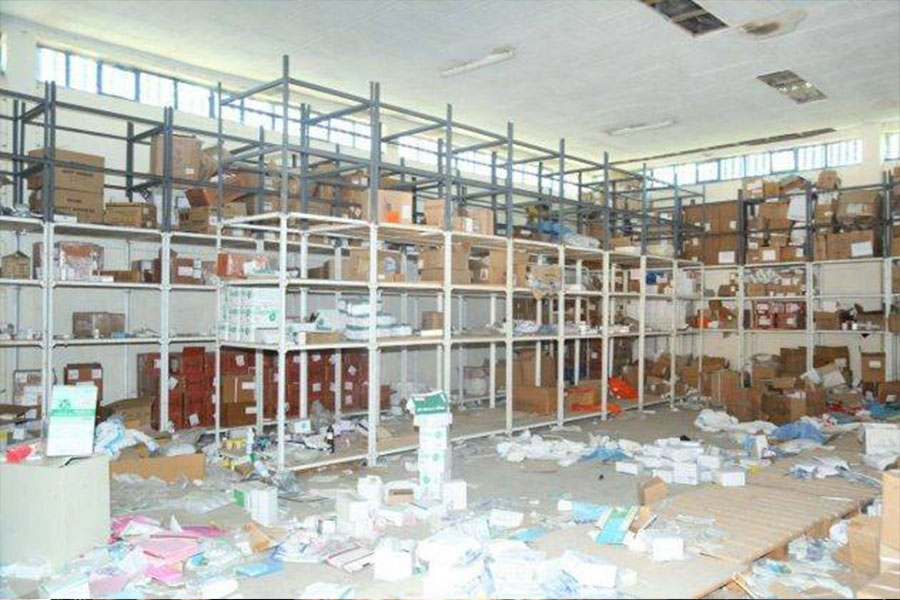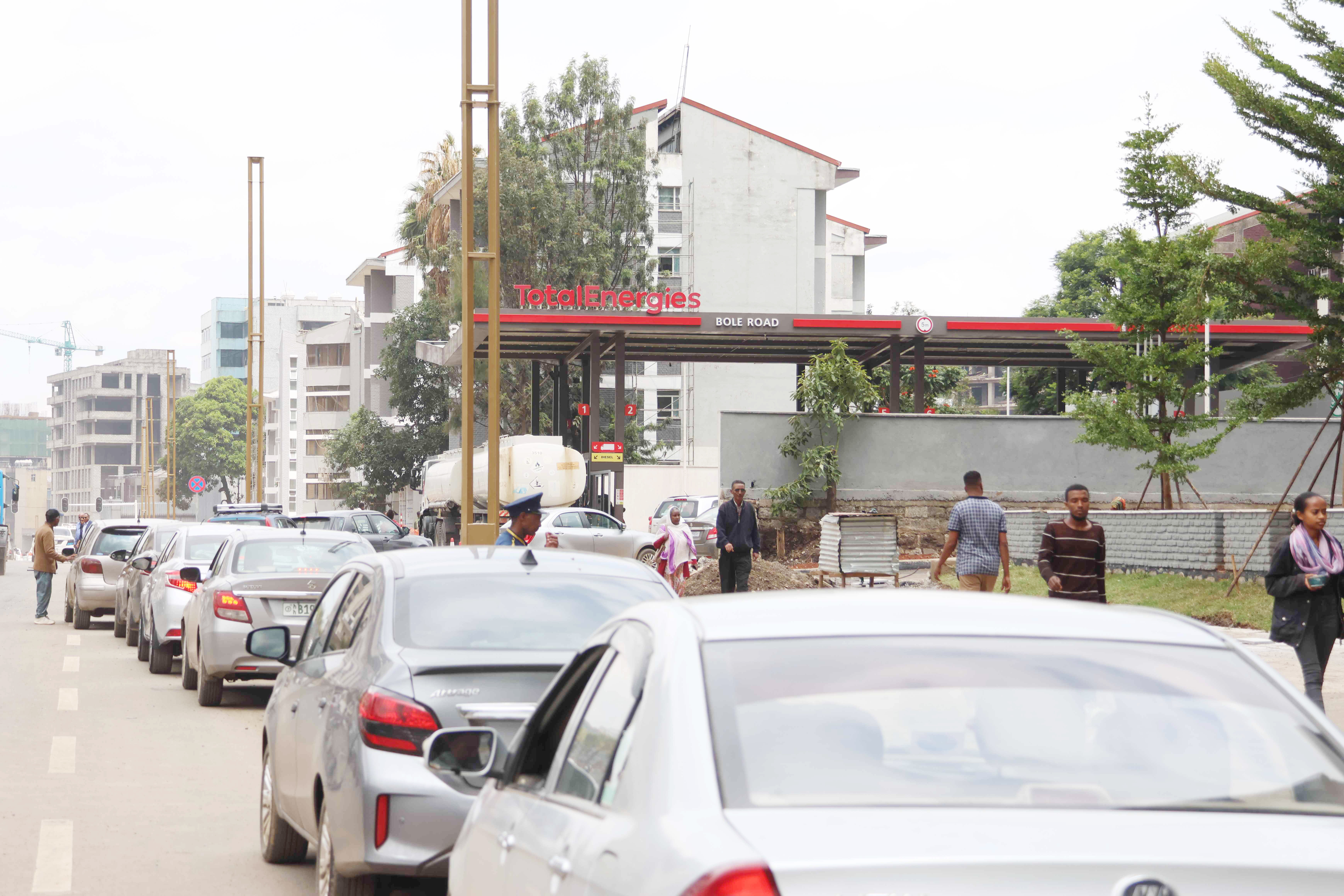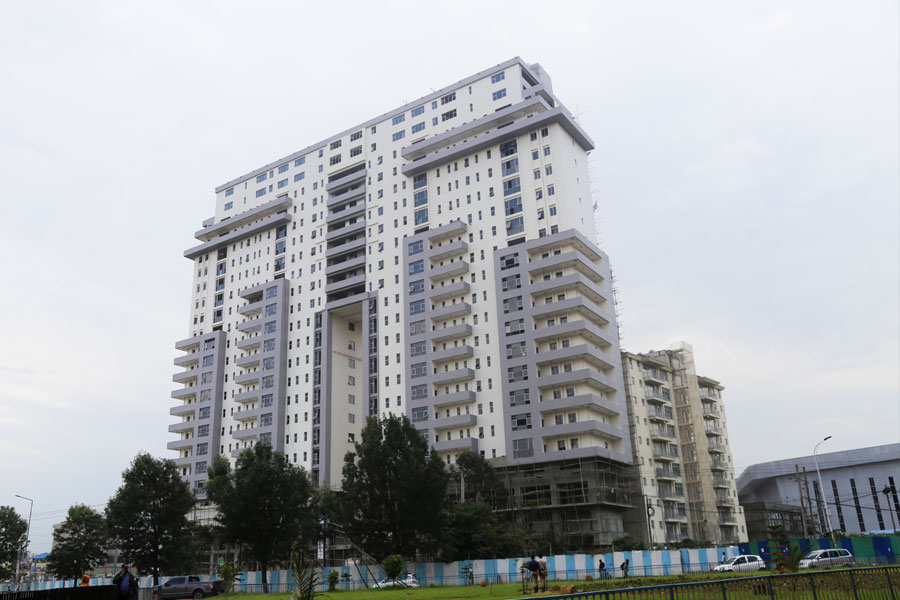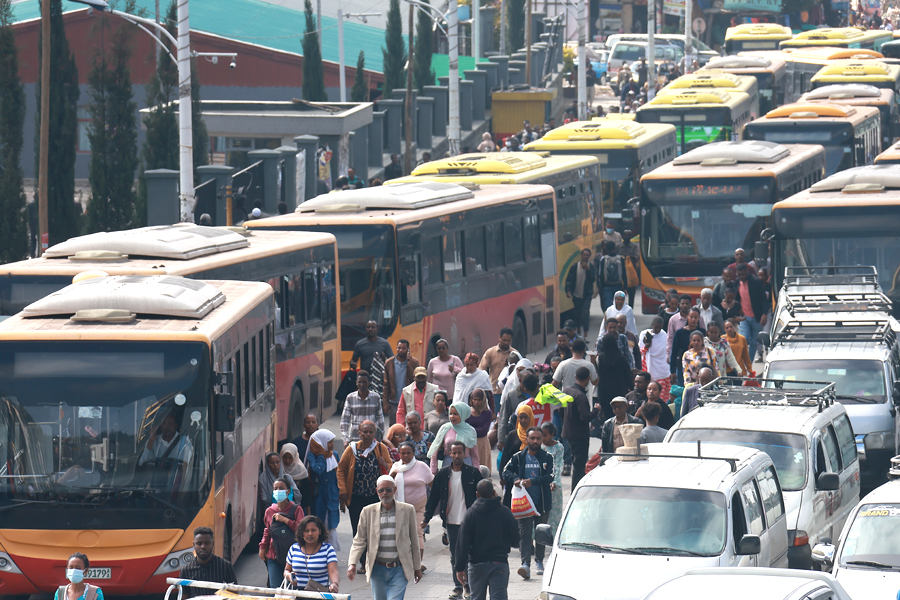
Verbatim | Aug 13,2022
Mar 30 , 2024
By Eden Sahle
A recent car ride through Addis Abeba with my family unearthed a stint of emotions. While the city's massive facelift was a wonder for my wide-eyed daughter, the scene evoked a profound sense of loss within me. The relentless demolition and excavation mirrored the ach in my heart – a place cherished for its history now ravaged by progress.
Piassa was the heart of my childhood and bore the brunt of this transformation. It was where I attended Lideta Catholic Cathedral School, where my father also worked. We spent countless hours exploring its historical structures and quaint restaurants, forging memories that remain vivid to this day. It held a special significance for him too – his first Addis Abeba haven after emigrating from Eritrea.
His love for history feels particularly touching now. A week before his sudden passing, he took me on a final pilgrimage through Piassa, a bittersweet day etched forever in my memory. We reminisced about the subtle changes over the years, unknowingly foreshadowing the dramatic metamorphosis to come.
I did not go much further for higher education as well. I studied law at Sidist Kilo University and often went to Piassa to meet with my father. After his passing, I went to those places to reminisce over the memories. Returning to see those very streets and restaurants reduced to rubble last week, tears streamed down my face. It was as if part of me was being torn down.
My travels across Europe offered a contrasting perspective. European cities boast breathtaking architecture, a testament to their deep respect for history. Their development prioritises maintaining the historic character. Public sentiment shapes policy, with leaders taking cultural heritage seriously over towering skyscrapers. Cities like Paris and Prague exemplify this philosophy, their residents holding a deep attachment to their architectural backdrops. Buildings here are valued not only for function but for their positive impact on the community and environment.
Europe's cautionary tale lies in Brussels, a city that embraced rapid modernisation in the 1960s and 70s. Widespread demolition of high-rises, a period known as "Brusselisation," resulted in widespread criticism. The new structures were seen as destroying the city's soul, erasing its cultural identity. This misstep led to stricter building regulations across Europe, a reminder of the importance of striking a balance between progress and preservation.
Witnessing Europe's commitment to its cultural heritage, even at significant expense, compels me to question our approach in Addis Abeba. While our historic buildings may not boast the grandeur of European architecture, they hold immense value nonetheless. The city's modernisation, undeniably necessary, has disrupted countless lives.
Addis Abeba's historic buildings lack the grandeur of European architecture. Many structures, especially in densely populated areas, are constructed from wood and suffer from years of neglect. The argument for preservation hinges on our understanding of history's value. Thousands have had their lives impacted by the demolitions. These areas, while holding cherished memories, are undeniably in need of improvement.
The ideal outcome is a plan that successfully balances cultural preservation with the needs of a growing city. Imagine a city that offers modern housing and commercial spaces alongside restored architectural gems. Such a development would foster a renewed sense of community, allowing residents like myself to share not only family history but the rich past with future generations.
New construction can coexist with the legacy, alleviating the grief associated with demolition. It lies in creating a new landmark that respects its heritage while embracing the demands of the present.
PUBLISHED ON
Mar 30,2024 [ VOL
24 , NO
1248]

Verbatim | Aug 13,2022

Commentaries | Jun 04,2022

Fortune News | Dec 19,2021

Radar | Oct 18,2025

View From Arada | Oct 05,2024

Fortune News | Jun 29,2024

Fortune News | Jun 10,2023

Fortune News | Oct 21,2023

Agenda | Nov 04,2023

Viewpoints | Jun 08,2019

Photo Gallery | 176981 Views | May 06,2019

Photo Gallery | 167197 Views | Apr 26,2019

Photo Gallery | 157780 Views | Oct 06,2021

My Opinion | 136945 Views | Aug 14,2021

Dec 22 , 2024 . By TIZITA SHEWAFERAW
Charged with transforming colossal state-owned enterprises into modern and competitiv...

Aug 18 , 2024 . By AKSAH ITALO
Although predictable Yonas Zerihun's job in the ride-hailing service is not immune to...

Jul 28 , 2024 . By TIZITA SHEWAFERAW
Unhabitual, perhaps too many, Samuel Gebreyohannes, 38, used to occasionally enjoy a couple of beers at breakfast. However, he recently swit...

Jul 13 , 2024 . By AKSAH ITALO
Investors who rely on tractors, trucks, and field vehicles for commuting, transporting commodities, and f...

Oct 18 , 2025
The political establishment, notably the ruling party and its top brass, has become p...

Oct 11 , 2025
Ladislas Farago, a roving Associated Press (AP) correspondent, arrived in Ethiopia in...

Oct 4 , 2025
Eyob Tekalegn (PhD) had been in the Governor's chair for only weeks when, on Septembe...

Sep 27 , 2025
Four years into an experiment with “shock therapy” in education, the national moo...

Oct 18 , 2025 . By NAHOM AYELE
In a sweeping reform that upends nearly a decade of uniform health insurance contribu...

A bill that could transform the nutritional state sits in a limbo, even as the countr...

Oct 18 , 2025 . By SURAFEL MULUGETA
A long-planned directive to curb carbon emissions from fossil-fuel-powered vehicles h...

Oct 18 , 2025 . By BEZAWIT HULUAGER
Transaction advisors working with companies that hold over a quarter of a billion Bir...